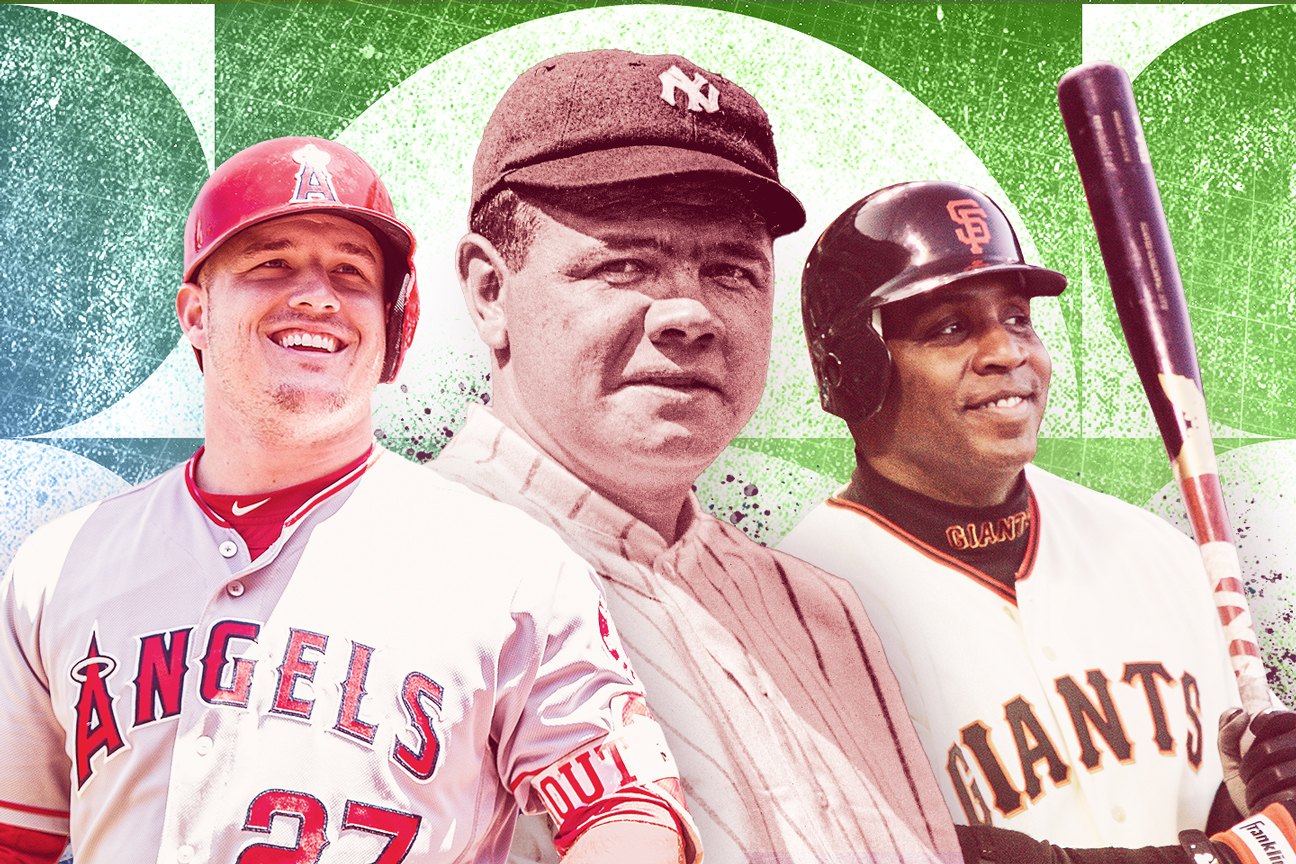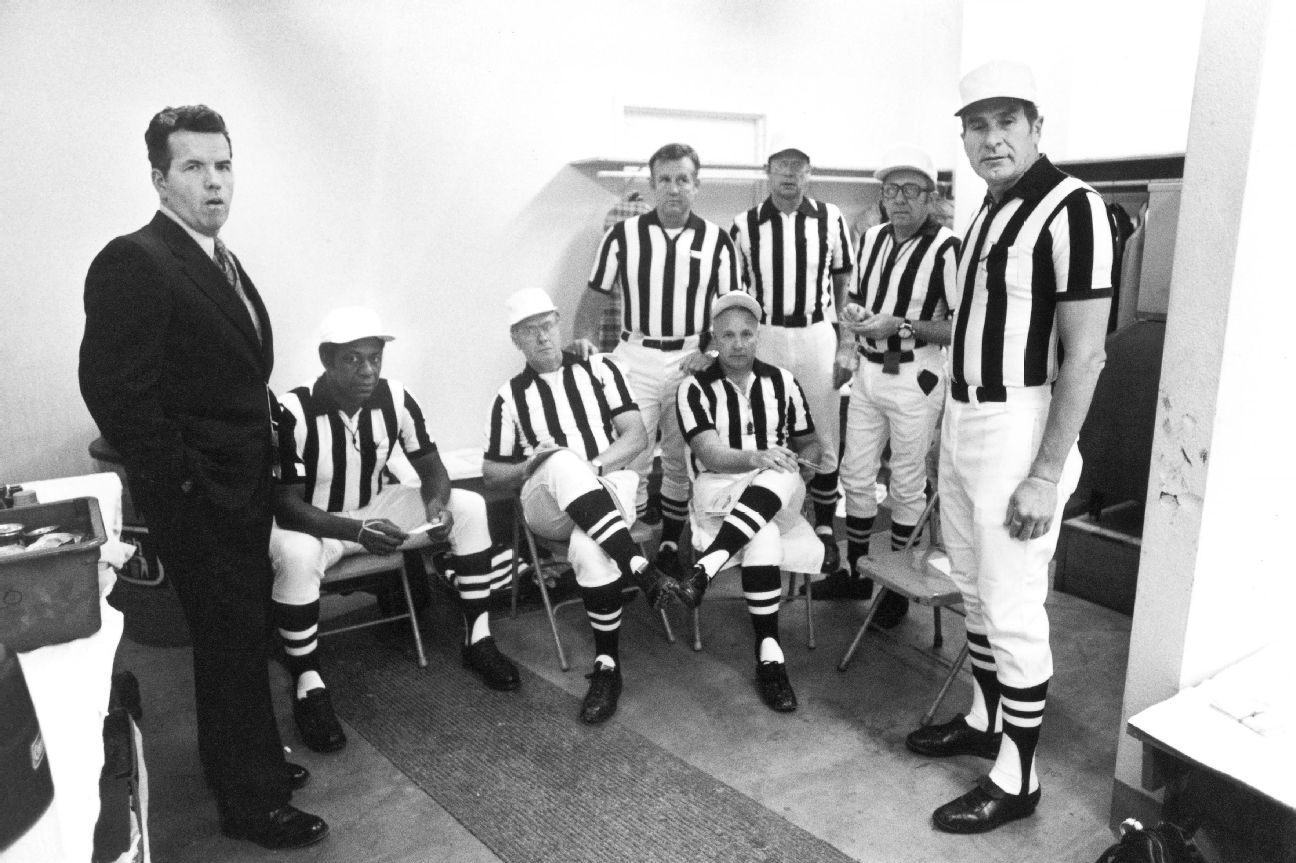Like father like son: How former pros helped their sons make it in the NBA, NFL, NHL and MLB
Like father, like son.
That’s certainly the trend in professional sports.
More than a few players in the NBA, NFL, NHL and MLB have followed in the footsteps of their dads. In fact, in three of those four sports, the number of second-generation players has increased notably this century.
Second-generation players*
| League | 1981 | 2001 | 2021 |
|---|---|---|---|
| NFL | 1.0% | 1.8% | 3.4% |
| NHL | 1.9% | 1.5% | 6.1% |
| MLB | 1.9% | 2.9% | 1.9% |
| NBA | 1.3% | 1.6% | 4.9% |
| *Minimum one game played | |||
The NHL tops the list as 6.1% of players who took part in at least one game last season have a father who played in the league, up from 1.5% in 2001. The NBA is next with 4.9% (up from 1.6%) and the NFL was at 3.4% last season (up from 1.8%). MLB had the most second-generation players in 2001 (2.9%) but dropped to 1.9% in 2021.
What was it like to grow up with a father who played sports professionally? Did they push their sons to carry on their legacy? Did the kids have any advantages in their goal to become professional players?
Heading into Father’s Day, we checked in with second-generation combos Melvin and Devin Booker in the NBA, Tie and Max Domi in the NHL, Charlie and Ke’Bryan Hayes of MLB and Michael Pittman and Michael Pittman Jr. in the NFL to get an idea of what it’s like to have a father who’s played at the highest level and how it might help.
Jump to:
NBA’s Bookers | NHL’s Domis | MLB’s Hayes | NFL’s Pittmans

Devin Booker’s journey to the Phoenix Suns started long before he or his father, who played in the NBA and overseas, knew it had begun.
During Melvin’s offseasons in Mississippi, Devin would accompany his father to the gym, watching him shoot, work out and play pickup. While Melvin fine-tuned his game in the sweltering heat of the Delta, Devin’s basketball foundation was laid.
“I just spent every moment with him,” Melvin said.
When Devin was around 12 or 13, Melvin sat him down and asked a question that shaped the rest Devin’s life: Did he want to play basketball or was he playing because he thought his dad wanted him to play?
Devin settled any doubt: “Dad, I want to play.”
“It was all his passion, his love for it,” Melvin said. “It was my duty as a father, a former player, to show him the way.”
Melvin, who played in 32 NBA games in two seasons from 1995 to 1997, started to have an inkling Devin could follow his footsteps to the NBA during the summer AAU circuits early in high school. Devin was having success against the likes of Julius Randle, Andrew Wiggins, Aaron Gordon, Jahlil Okafor and Jabari Parker — all of whom went on to NBA careers.
That’s when Melvin stepped up his game as a father.
Can you predict the NBA draft? Play for FREE and compete for a chance to win $20,000! Create an Entry
Devin moved to Mississippi from Michigan to attend high school — and so his dad could train him. For the next few years, Melvin was more than a dad. He was a coach, trainer and mentor.
“We were like best friends, together every day,” Melvin said. “I missed a lot of Devin’s life because I was overseas, and those seasons are like 10 months long over there. So, whenever we were together, it was like catching up.”
Melvin was sharing NBA-level coaching with his son — something not many, if any, of Devin’s peers in Mississippi were receiving. Melvin taught his son how to lift weights, how to eat right, how to put in time after practice with one-on-one drills.
It helped that Melvin was always one of Devin’s coaches, whether it was a head coach or an assistant on his high school or AAU teams. He’d give Devin in-game adjustments, dissecting the game and information at a pro level. And Devin soaked it all in.
Devin was the definition of a “Basketball Jones.” Being an NBA player was all he wanted to be, and Melvin used his career as a blueprint for Devin, who has gone on to be an NBA All-Star. He also made sure to not push Devin too hard.
“There’s a thin line,” Melvin said. “I understand that as well.
“We never had one bump in the road along the way.”
It all hit Melvin on the bus from the hotel to the 2015 NBA draft at the Barclays Center in Brooklyn. He sat by himself as the bus inched along in traffic, giving Melvin time to reflect on the moment.
“I’m like, ‘My son’s dream is about to come true,'” Melvin remembered.
He started to tear up.
Now, whenever Melvin watches Devin in person or on TV, he still sees the little boy who’d dribble around the house and talk about making it big.
“It’s a surreal feeling,” Melvin said. “It’s hard to even explain it in words.
“He’s a professional basketball player, so it worked out for him.” — Josh Weinfuss
Carolina Hurricanes center Max Domi’s best friends growing up were future NHL Hall of Famers.
Or so he thought.
They were really just his father’s Toronto Maple Leafs teammates. But to Max, the locker room was a playground, and the people within it were pals.
“I didn’t really have the normal childhood growing up,” Max said. “I was around guys like Mats Sundin, Brian McCabe, Tomas Kaberle and Ed Belfour on a regular basis, thinking they’re my buddies. I look back and laugh, like, ‘What the hell?’ I thought that was totally normal to believe Mats Sundin was my best buddy.”
His father Tie spent the final 11 seasons of his 17-year pro career as a bruising enforcer for Toronto, starting right around when Max was born in 1995. No one knew then Max would follow his father into the league as a highly touted winger drafted No. 12 overall by Phoenix in 2013 and having appeared in 501 games, with 314 points, to date.
Some of Max’s most formative years came about during Tie’s time with the Leafs. It’s when he taught Max to not only love the game but respect it.

 The Colorado Avalanche and Tampa Bay Lightning are facing off in the Stanley Cup Final. You can watch all seven games on ABC, ESPN+ and in the ESPN App.
The Colorado Avalanche and Tampa Bay Lightning are facing off in the Stanley Cup Final. You can watch all seven games on ABC, ESPN+ and in the ESPN App.
*If necessary
“He’d go, ‘Shut up and watch and listen and act as a sponge,'” Max said. “It’s how I learned most of what I know now. He showed me what the sacrifices are to become a professional [player]. Most people don’t learn that until they’re in junior [hockey]. But when you’ve got a dad that holds you accountable at the age of 8, you’re making certain sacrifices that your buddies don’t have to. It’s tough, but you get forced to because he’s your dad. It was just a huge advantage in every way possible.”
Max’s skill set was nothing like his father’s, though. Tie could recognize that while he built a reputation out of burying guys into the boards, Max was the exact top-end talent that he would likely target.
Like any father, Tie wanted to protect his son. He gave Max the tools to be a success, trusting he’d handle the rest.
“For me, it was my toughness. Totally opposite of Max,” Tie wrote in his book, “Shift Work.” “I took care of the best players in the world, and he’s always wanted to be the best. As an ex-player and his father, the thing I like the most is that I haven’t seen him take a shift off, and he’s known how to win since he’s been a kid.”
Max gives his dad credit for being a relentless instructor. Even now, Tie doesn’t pass on a teachable moment he thinks will give his son an edge.
“His brain is pretty sharp when it comes to the game,” Max said. “And ultimately, he watches [everything]. So, like, he’ll watch Sidney Crosby or Patrick Kane or these elite guys. And then he’ll send me clips and be like, ‘Did you see that? Did you see that?’ Even when it’s something so basic. We joke about it now, but it’s been something that I’ve learned a lot from over the years from him. I really appreciate it.” — Kristen Shilton
One of the first times Ke’Bryan Hayes hit a home run in T-ball, he tripped rounding first base.
His dad looks back at those moments now and laughs.
To Charlie, who played in the major leagues for 14 seasons and won the 1996 World Series with the New York Yankees, it’s the perfect illustration of his son’s early years as a baseball player. Charlie said Ke’Bryan, the youngest of three, was his “least athletic” son, but he is also the one carrying on his dad’s legacy as a third baseman for the Pittsburgh Pirates.
“I used to trip and fall, like, back peddling and shuffling,” Ke’Bryan said. “Looking back, it’s funny to see how far I’ve come from the time I was 5, 6, 7 all the way to now. Without [my family], I wouldn’t be here today.”
Now in his third season as a major leaguer, with an eight-year, $70 million contract signed earlier this season, Ke’Bryan is more than capable of staying on his feet when he hits a home run for Pittsburgh just like his dad did when he was with the Pirates in 1996.
Because Charlie retired when Ke’Bryan was 4, Ke’Bryan doesn’t remember much about his dad’s professional career.
Who is the greatest baseball player ever? We ranked the 100 best to ever take the diamond.
“I used to watch his VCR tapes that he had at the house, highlights and all that, but it probably didn’t really register until I was like 10, 11, 12 — around that age,” Ke’Bryan said. “… I’m more quiet and reserved. My older brothers, they’re gonna tell everyone that he played and all that type of stuff. But I’m like my mom, he’s just dad to us.”
To help get Ke’Bryan here, Charlie instilled a major league work ethic in his son and stressed skills Ke’Bryan would need to make it as a professional.
“We were into the process, not the results, because I understood that from me playing baseball,” Charlie said. “So that’s what I always try to instill in them. It wasn’t like I forced them to play ball. They wanted to play, but if we were gonna do it, we were gonna try to do it the proper way every single time.”
Even though he had Charlie’s road map to follow, sometimes Ke’Bryan didn’t want to take coaching from his dad. Sometimes he needed a different messenger.
Charlie turned to his middle son, Tyree — who is eight years older than Ke’Bryan.
“Tyree is the reason why Ke’Bryan can catch the ball like that,” Charlie said. “I showed him and then he showed his brother. … I basically told Tyree what he needed to be doing, and Tyree could get him to do it because they were better friends than me and them were, because I had to be the disciplinarian guy. They understood each other a lot better. I could tell him the same thing Tyree would tell him, but he would take it differently.”
As Ke’Bryan got older, Charlie continued to work with him, emphasizing versatility and good practice habits.
“Doing all the travel ball circuit and all that, definitely having a father that played already, that’s gonna get you extra looks and more chances,” Ke’Bryan said. “… People would say it’s in his genes, but he’s gotta wear’ em, like, you still gotta put in the work.” — Brooke Pryor
“I always thought it was what I was going to do because to me football was normal,” Pittman Jr. said. “I didn’t think my dad was special because he played in the NFL. It was just there since I was born. I didn’t really appreciate it until I got around 14 or 15, and then it sunk in that my dad really played in the league for 11 years.”
Pittman Jr. even thought he was going to follow in his father’s footsteps by wearing his No. 32 and playing running back. This was all junior’s thinking. His father supported him, rather than pushing his son throughout his Pop Warner days.
“I was that dad who didn’t force anything on my kids when it came to sports,” Pittman said. “I always forced being a good person and getting good grades. When it came down to it, football is what Michael Jr. really wanted to do. I wasn’t really hard on him, especially at a really young age. I was more about teaching him. He was the type of son who always listened, never thought he knew everything.”
Pittman didn’t really step in until it was time to tell his son he didn’t have a future as an NFL running back. Pittman Jr.’s best chance for success would be at receiver, his father told him.
“Junior was stuck on playing running back because that’s what I played,” Pittman said. “He was very good at running back, but seeing your child and where the game was going, he was going to be tall, so that’s why I told him he was going to be a receiver.”
Pittman transferred his son in California from Valencia High School to Oaks Christian High School after his freshman season because his friend and former NFL receiver Mike Sherrard was on the school’s offensive staff.
“I wanted him to be around guys who played professionally in the NFL,” Pittman said. “I couldn’t coach my son, so I wanted to make sure he got around those who had been there and done it, knew what it took to make it and what it took for my son to go where he wanted to do.”
Father knew best because the younger Pittman sprouted to 6-foot-4 by the time he started his college career at USC.
While Pittman Jr. had the size to play receiver, he was learning how to play the position. That’s where his father’s relationships with others who played receiver in the NFL — like Keyshawn Johnson, Curtis Conway, T.J. Houshmandzadeh and others — came into play.
“I’ve always had access to elite players,” Pittman Jr. said. “I had, and still have, instant contact with all those guys. They really gave me an understanding of football in a football life because in football there’s always ups and downs. They taught me how to manage it.” — Mike Wells





